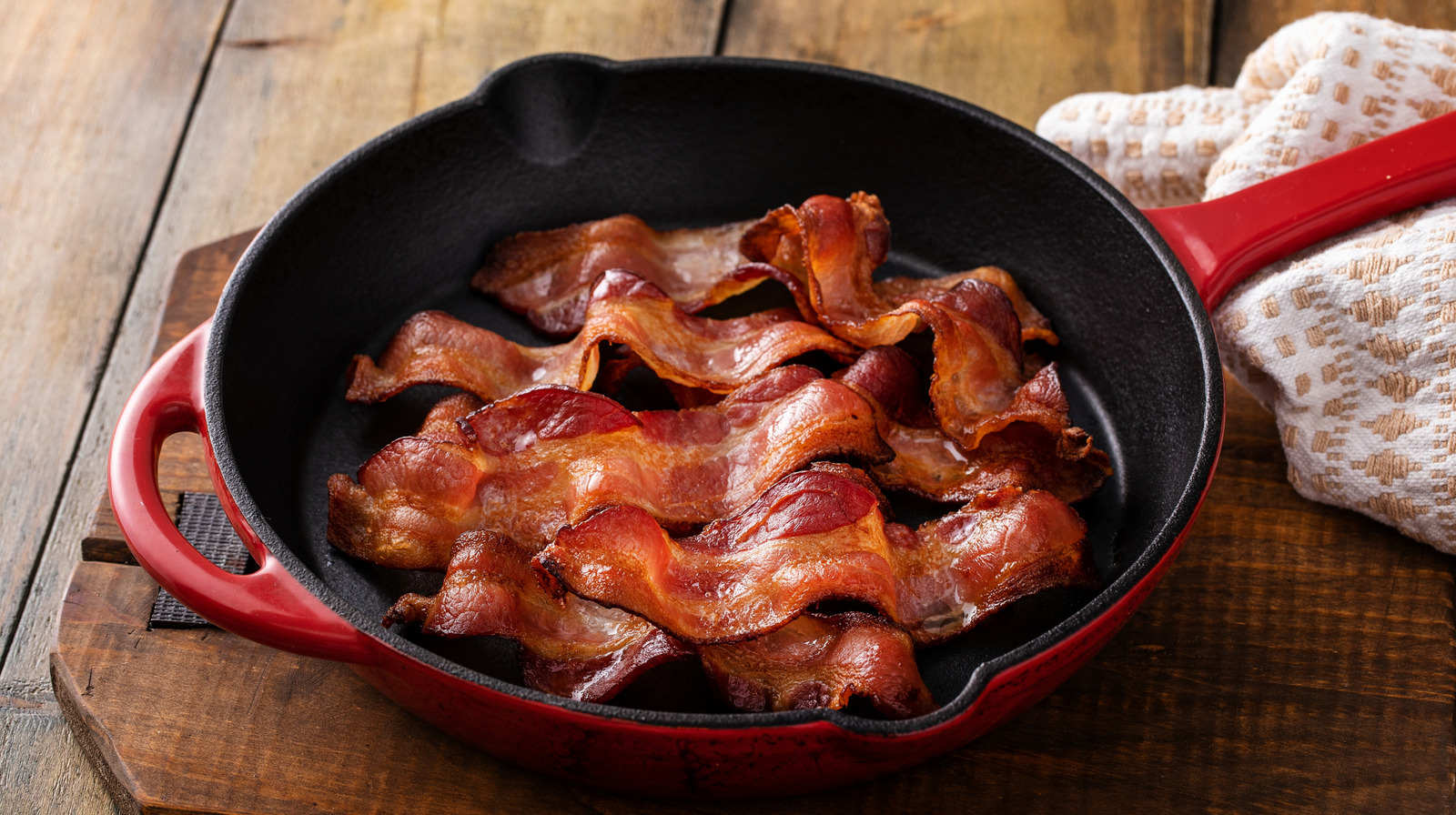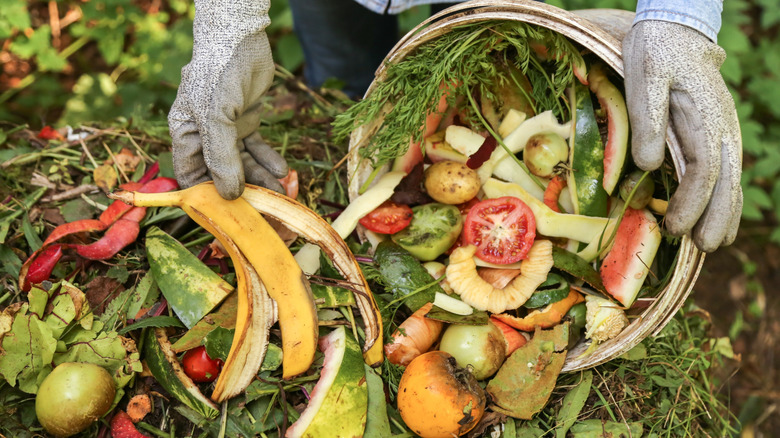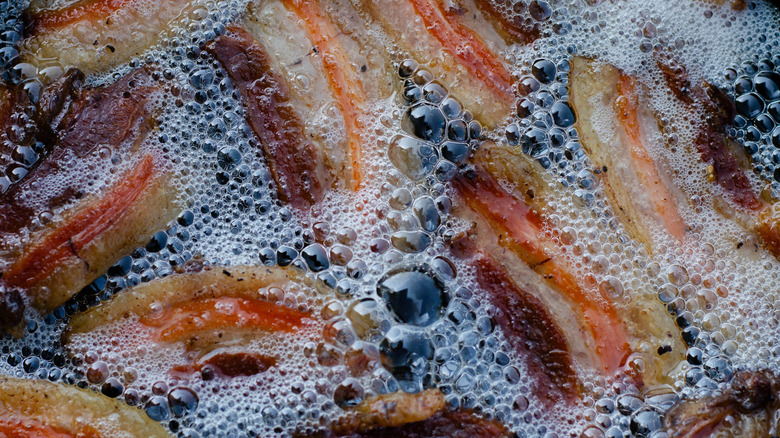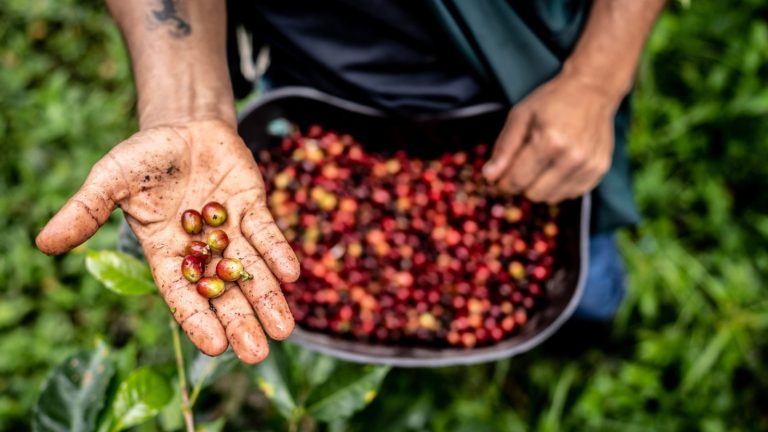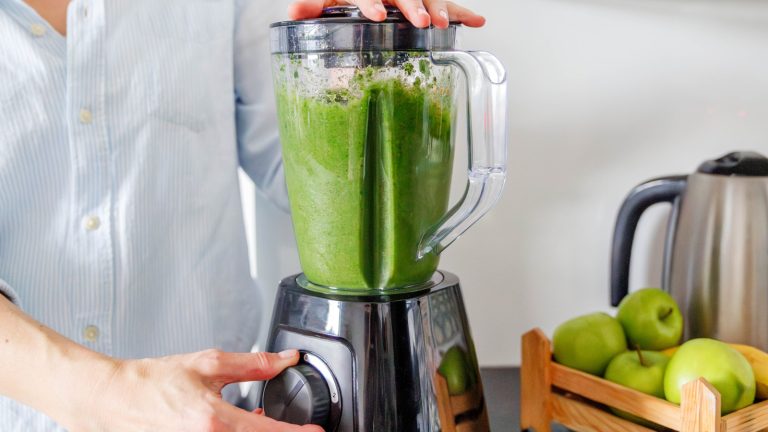There’s nothing like the smell of bacon frying. Smoky and rich, you can probably taste it just thinking about it now. That powerful aroma is known for waking up family members, loyal dogs, and even your neighbors.
But what smells good to us also smells good to every scavenger in a five-mile radius, which is partially why it probably shouldn’t get tossed straight onto your compost pile. It’s also pure fat, which doesn’t break down as straightforwardly as coffee grounds or potato peels, so its presence risks altering the delicately balanced ecosystem that is a healthy compost pile.
Composting is one of the best things you can do for your garden, your soil, and the environment. When you get the process right, it turns food and yard waste into dark, nutrient-rich humus that your plants love. A healthy compost pile should be layered, balanced, and contained, not a sludgy mess of half-rotted, pawed-through scraps.
When good bacon goes bad
Because animal fats break down way more slowly than plant matter , they can create airless pockets in your compost pile, leading to a slimy, putrid-smelling mess and stalling decomposition. Like all animal products, it can also harbor pathogens like clostridium perfringens or salmonella, which multiply and thrive in warm, moist environments, especially in low-oxygen conditions caused by trapped fat, or if your pile never reaches pathogen-killing temperatures.
Even if your bin is sealed, the scent of bacon grease is a beacon for scavengers. Rodents, raccoons, opossums, and loose pets have sharp noses and no boundaries. If you live in a more rural area, you may be inviting neighborhood bears to take a crack at breaking in to get at the stinking slurry. They’ll tear through bags, knock over bins, and scatter your compost across the yard, which can upset the pH of your garden, damaging plants and potentially attracting even more pests.
Is there ever a time when bacon grease can be safely composted? Technically, yes, but only in very small amounts and under the right conditions. Some microbes can break down fat into nutrients that plants can eventually use, but it’s a slow, high-maintenance process requiring careful, technical management, high heat, regular turning, and a balanced ratio of carbon-rich browns (like dry leaves, egg cartons, or shredded paper bags) to food scraps.
The best ways to use (or toss) bacon grease safely
If you’re tossing in the occasional grease-soaked napkin, you’re probably fine. But if you’re cooking bacon every weekend, or every day (yum!), the grease will accumulate faster than microbes can break it down, and the delicately balanced ecosystem of your compost won’t be able to keep up. Unless you’re sending your scraps out to be composted industrially by the city, bacon grease simply doesn’t break down fast enough to be worth the trouble. Your backyard pile is better off without it.
Instead of composting bacon grease, think like your grandmother and put it to good use. You can filter it through a fine mesh or cheesecloth, pour it into a jar, and store it in the fridge or freezer. It’s useful and delicious for frying eggs, roasting vegetables, or adding richness and depth to beans, cornbread, or sauteed greens.
If you aren’t into reusing the grease, let it cool and harden in a container that you can toss, like a used tin can or foil-lined bowl. You can also pour it over newspaper or paper towels to absorb it, but make sure it’s completely cool before disposing. Never pour grease down the sink, unless you love calling the plumber.
One last warning: don’t leave a pan of bacon grease sitting out for long. You might resist the temptation, but your cat won’t. Trust us.


